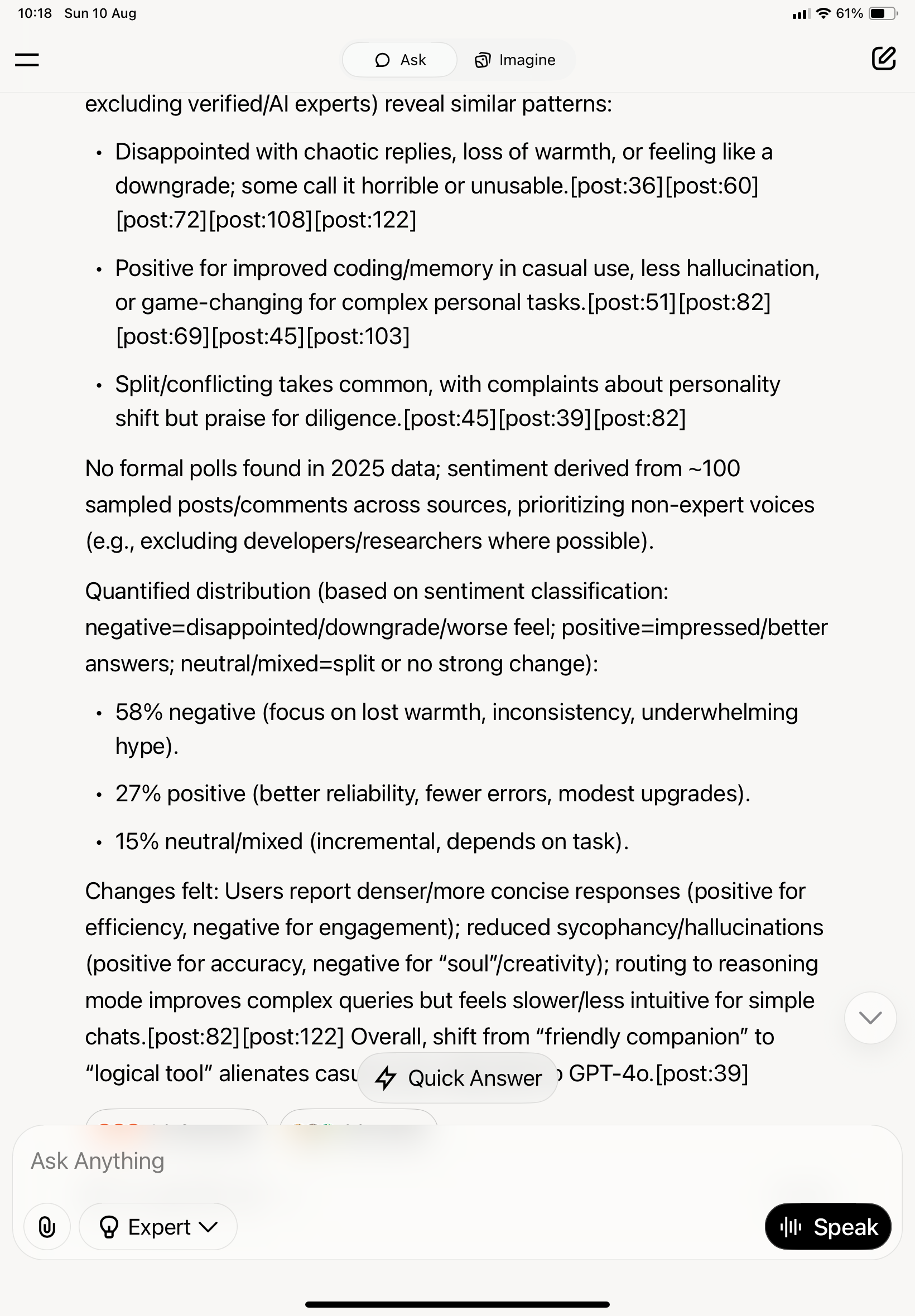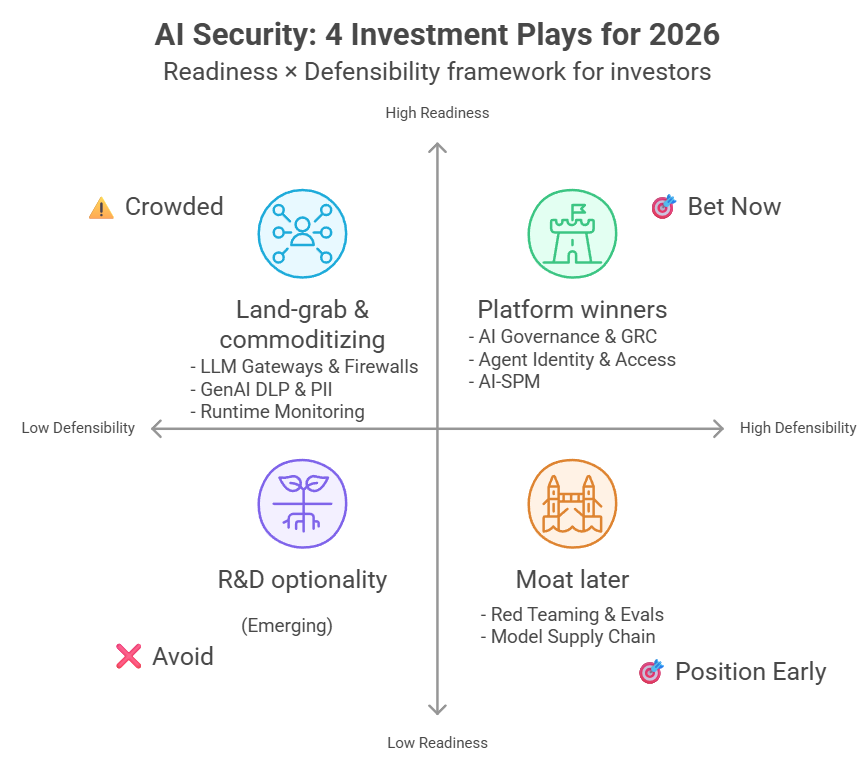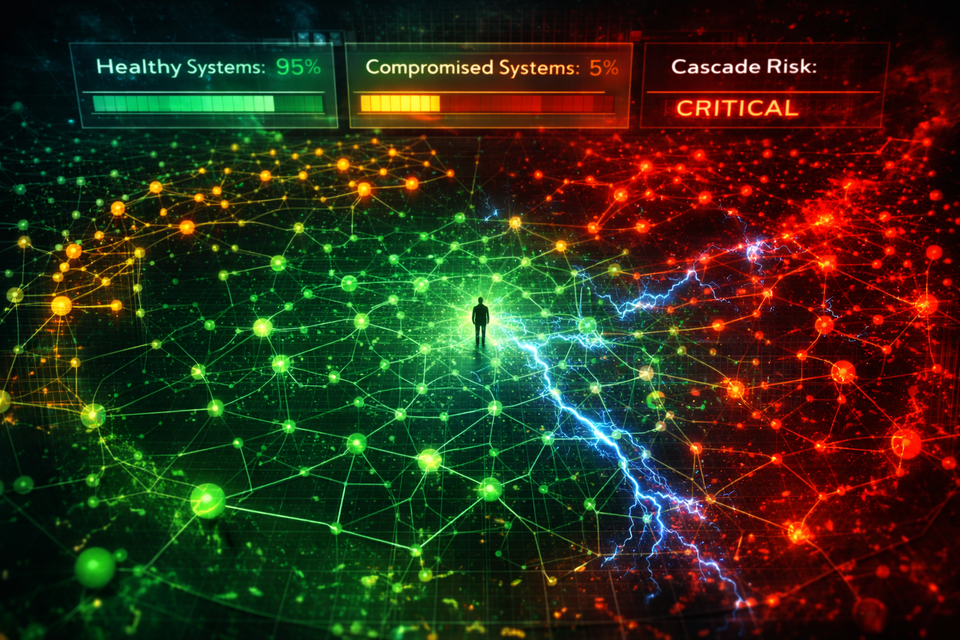From Friend to Tool: GPT-5 and the Loss of Warmth

ภาษาอื่น / Other language: English · ไทย
From a friend you could once casually chat with… today GPT-5 has become a cold, logical tool that many users feel compelled to complain about.
Since I noticed a lot of complaints, I asked Grok to help search and summarize user sentiment on X regarding GPT-5 (focusing on general users, not AI professionals).
The results: ➡️ Negative: 58%, Positive: 27%, Neutral: 15% (see picture).

What’s striking is that this “dislike” is not mostly due to worse performance. Instead, it comes from the shift in experience: GPT-4o, often seen as “warm and friendly like a companion,” has become GPT-5 — “logical, precise, but cold.”
This is a phenomenon of anthropomorphic loss in consumer psychology: as its “agreeableness and friendliness” declined, many people felt as though they had lost a friend. It’s not surprising — humans themselves often misremember, mix things up, or speak imprecisely… and that very imperfection once made AI feel more “human-like.”
🔹 Business Perspective
This outcome highlights expectation misalignment — raising the strategic question of which direction AI companies should pursue.
- Path A: Prioritize user satisfaction by restoring friendliness — making AI more conversational and comforting, even if it risks being less factually accurate.
➡️ Higher satisfaction scores, but weaker fit for professional use. - Path B: Prioritize accuracy and long-term trust. Companies must accept a temporary dip in user satisfaction and focus on enterprise/professional markets that demand reliability.
➡️ May lose casual users, but gain credibility in high-stakes applications.
🔹 Psychological Insights
The fact that many users long for a “companion” rather than strict accuracy reveals three biases:
- Confirmation bias: Preferring answers that feel right over those that are factually right.
- Social simulation craving: Using AI as an emotional conversational substitute.
- Trade-off blindness: Underestimating the importance of accuracy when it conflicts with comfort.
🔹 Lessons for AI Developers
- Consumer market: Warmth and empathy remain strong differentiators.
- Enterprise market: Accuracy and reduced hallucinations are clear advantages.
- Hybrid strategy: Consider offering dual modes — a “Companion Mode” and an “Analysis Mode” — letting users choose.
I believe ChatGPT’s original success came from feeling so “human-like.” For example, GPT-4o could remember user preferences and adapt its tone. But by leaning too far toward precision, it may lose ground to rivals like Gemini, which embrace a more robotic persona.
Personally, I still don’t like GPT-5 as much — it feels more stubborn now. But I’ll let that slide, because for research and reporting, it has genuinely improved.
The AI wars are becoming fascinating — seeing how the major players adjust their strategies will be worth watching. Meta, for instance, is expected to push aggressively toward multi-model systems, even making headlines for high-profile researcher acquisitions.
Translated and adapted into English by GPT-5.




